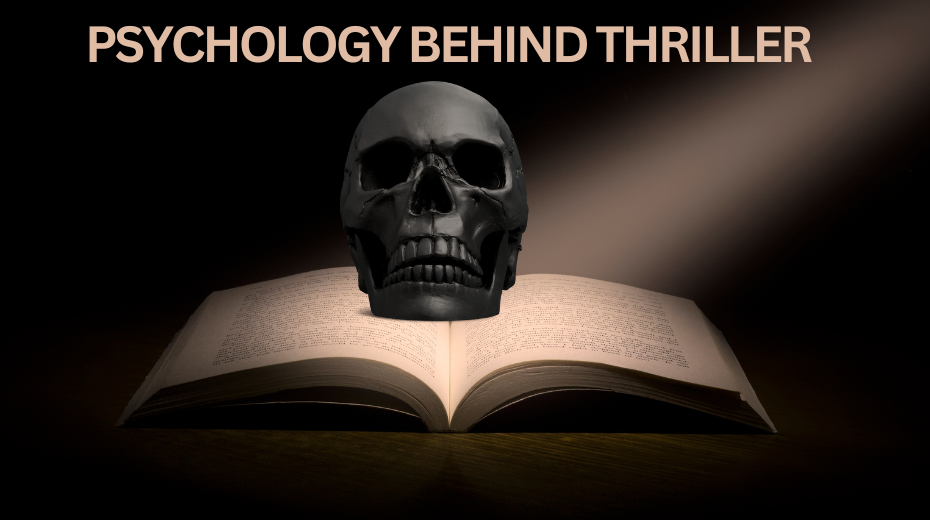The Psychology Behind Thrillers: Why We Love Them

Thrillers have captivated audiences for decades, drawing readers and viewers into their gripping plots filled with suspense, intrigue, and unexpected twists. But what is it about the thriller genre that hooks us so completely? In this exploration of the psychology behind thrillers, we’ll delve into the reasons why we love mysteries, the emotional experiences they provide, and the underlying psychological mechanisms at play.
The Allure of Suspense
At the heart of the thriller genre appeal is suspense. The tension created by unknown outcomes compels us to keep turning the pages or watching the screen. When we engage with a thriller, we’re often on the edge of our seats, eagerly anticipating the next revelation. This sense of suspense triggers a range of emotions, including excitement, fear, and even relief when resolutions finally occur.
Psychologically, this thrill can be attributed to our innate curiosity and desire for resolution. Humans are naturally drawn to stories that challenge our understanding of reality. The unpredictability of thrillers ignites our imaginations, prompting us to speculate about plot twists and character motivations. As we try to piece together the mystery, we engage in critical thinking, which further immerses us in the narrative.
The Emotional Rollercoaster
Another reason we love mysteries is the emotional rollercoaster they provide. Thrillers often evoke intense feelings that can range from fear and anxiety to exhilaration and triumph. This emotional experience serves as a safe outlet for our darker feelings. While reading or watching a thriller, we can confront fear and anxiety in a controlled environment, allowing us to process these emotions without real-world consequences.
The psychology of thrillers suggests that experiencing fear in fiction can lead to feelings of catharsis. This is the emotional release we often feel after overcoming a stressful situation, whether fictional or real. The climax of a thriller, where tension peaks, can result in a cathartic release, making the subsequent resolution all the more satisfying.
Exploring Dark Themes
Thrillers often delve into darker themes, such as crime, betrayal, and moral ambiguity. Engaging with these themes allows us to explore aspects of human nature that we might not encounter in our everyday lives. This exploration can be both fascinating and frightening, drawing us deeper into the narrative.
The thrill of venturing into the unknown can be enticing. It allows us to confront our fears in a safe way. We can explore questions about morality, justice, and human behavior, leading to a greater understanding of ourselves and the world around us. The complexity of characters and their motivations in thrillers challenges our perspectives, encouraging us to empathize with those we might otherwise judge harshly.
The Desire for Control
In a world filled with uncertainty, thrillers provide a sense of control. Readers and viewers often find themselves piecing together clues, predicting outcomes, and trying to solve the mystery before the characters do. This participatory element enhances our engagement, as we feel like active participants in the story rather than passive observers.
The thriller genre appeal is rooted in this interactive experience. As we attempt to decipher the narrative, we harness our problem-solving skills and analytical thinking. This mental engagement fosters a sense of accomplishment when we successfully navigate the complexities of the plot. Even if we don’t solve the mystery, the process of trying brings us closer to the story and its characters.
The Bonding Experience
Another psychological aspect of our love for thrillers is the social bonding that can occur during shared experiences. Watching a thriller with friends or family can intensify the emotional experience, as we react to scares and plot twists together. Discussing the film or book afterward allows us to analyze the plot and share our theories, creating a deeper connection with those around us.
The thrill of a good mystery can also stimulate conversation and debate. Exploring different interpretations of characters’ motivations or the resolution of the plot fosters engagement and connection. This shared experience not only enriches our understanding of the story but also strengthens our social bonds.
Conclusion: The Lasting Appeal of Thrillers
The psychology of thrillers reveals a complex interplay of emotions, intellectual engagement, and social connection that makes this genre uniquely appealing. From the suspense that keeps us on the edge of our seats to the exploration of darker themes that challenge our understanding of morality, thrillers offer a multifaceted experience that resonates with us on various levels.
As we continue to explore why we love mysteries, we find that thrillers allow us to confront our fears, engage our intellect, and connect with others. Whether it’s the adrenaline rush of a suspenseful chase or the satisfaction of piecing together a complex puzzle, thrillers tap into fundamental aspects of the human experience.
In a world that can often feel unpredictable, the thrill of a well-crafted mystery offers both escapism and a deeper understanding of ourselves. So, the next time you find yourself engrossed in a thrilling novel or film, remember that it’s not just the plot that captivates you; it’s the rich psychological tapestry woven into the fabric of the genre. Embrace the thrill, for it is a reflection of the complexities of human emotion and experience that we all share.